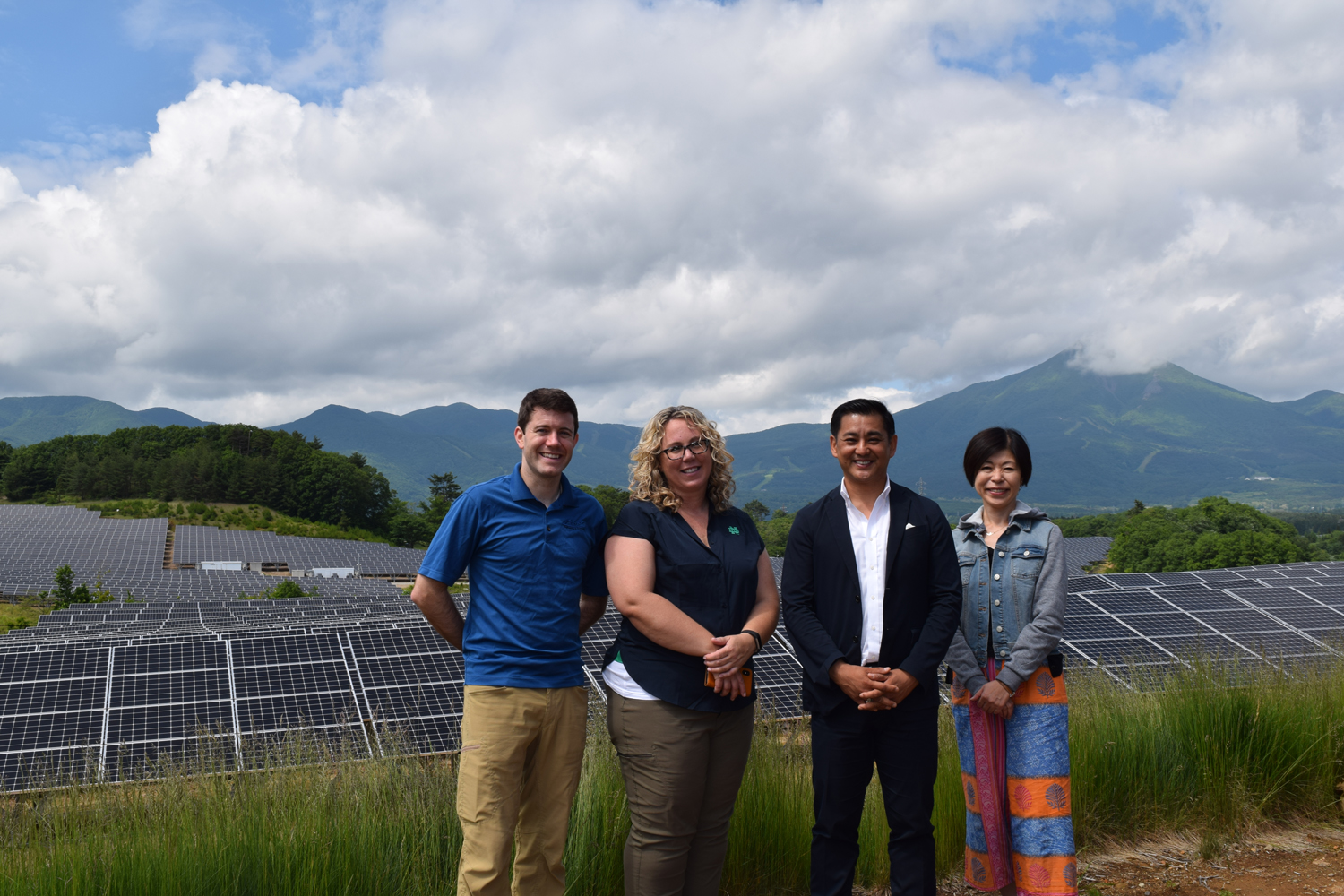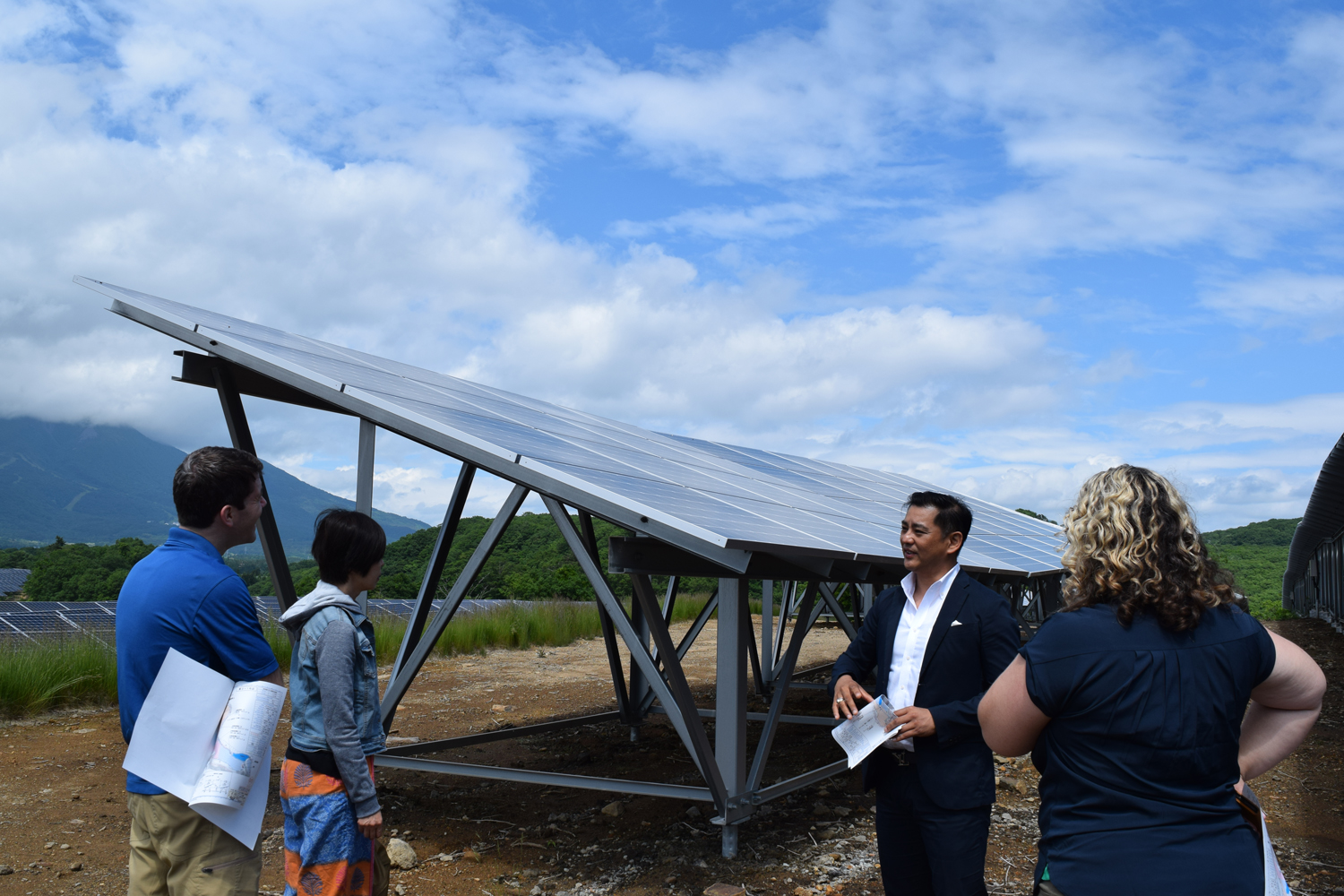Banpu Power Demonstrate Successful Contributions to Fukushima’s Recovery and Development Plan; Welcoming a US Research Team to Nari Aizu Solar Farm

Banpu Power Public Company Limited (BPP), a leading power-generating company operating both conventional and renewable power businesses across the Asia-Pacific region, recently welcomed a US research team to its solar power plant in Fukushima, Japan. Mr. Wataru Shima, Chief Executive Officer of Banpu Power (Japan) Tokyo branch and the representative of Banpu Power presented the Fukushima Prefecture Recovery Plan through renewable power generation to Professor Jessica McManus Warnell from the Department of Management & Organization – Mendoza College of Business, and researchers from the University of Notre Dame, USA. The team also visited Nari Aizu Solar Power Plant to collect data for their research project on “Energy, Justice, and Fukushima.” Banpu Power’s Nari Aizu Solar Farm has contributed to the economic and community development of Fukushima, in line with the Japanese government’s policy to promote renewable energy after the earthquake and Tsunami incidents in 2011. The power plant supplies Fukushima with solar-powered electricity generated with cutting-edge eco-friendly technologies. It is also the first power plant to have entered into the Agreement on Supplying Power from Emergency Power Supply at Disaster with Aizu Wakamatsu municipality, which guarantees power reserve for the nearby communities.
“Our team is very impressed with the dedication of Banpu Power in smartly integrating solar power generation in the disaster-affected area, which yielded an awe-inspiring landscape. It is a good model showing a striking harmony between the deployment of modern technologies and preserving a pristine natural environment. We could also sense the collaboration among the Company, local leaders, and local people. So, we are looking forward to learning more from Banpu Power’s community development model based on its renewable energy operation,” Prof. Warnell said.
“Banpu Power is committed to being a good corporate citizen in every country where we operate. We have taken part in the Fukushima Prefecture Recovery Plan since 2014 when we started the development of a 26 MW Nari Aizu Solar Power Plant. From the beginning, we visited the community and listened to the locals’ opinions; we found that power shortage during a disaster is their top concern. And as we always prioritize stable and reliable power supply, we installed the emergency power supply system direct from our solar power plant to provide uninterrupted power supply during disasters,” Mr. Shima said.

Earlier, Banpu Power had provided aid to the Mukawa Community, Hokkaido, which suffered total power blackout after an earthquake. The Company delivered five portable solar power generators worth THB 850,000 (USD 27,500) to Mukawa to provide renewable power for the residents in both normal times, and when a disaster strikes.
Banpu Power currently has 13 solar power plants and projects in Japan with 233.57 MW equity-based power generation capacity, including five power plants that already achieved Commercial Operation Date (COD). The Company targets for additional 300 MW of renewable capacity by 2025.
Mr. Sutee Sukruan, Chief Executive Officer of Banpu Power Public Company Limited, said, “Banpu Power’s renewable power generation capacity in Japan plays a crucial role in driving the Company’s growth according to the Greener & Smarter Strategy. The Company targets to increase capacity to over 4,300 MWe, with a minimum of 20% share of renewables by 2025. Banpu Power’s management and employees feel honored that the US research team recognized our unwavering dedication to the recovery of Fukushima Prefecture. The effort not only reflects our good relationships with the community and local government, but is also aligned with Banpu Power’s policy to strike a balance between business growth and community, social and environmental development in every location where we operate.”
# # #
About Banpu Power
Banpu Power Public Company Limited operates both conventional and renewable power businesses across Asia, including in Thailand, Lao PDR, China, Japan, and Vietnam. Over the past two decades, the Company has been committed to increasing power generating capacity according to the strategic plan of balanced growth between conventional power generation and renewables, utilizing advanced technologies that are safe and environmental friendly in order to become a sustainable regional leader in the power industry.



